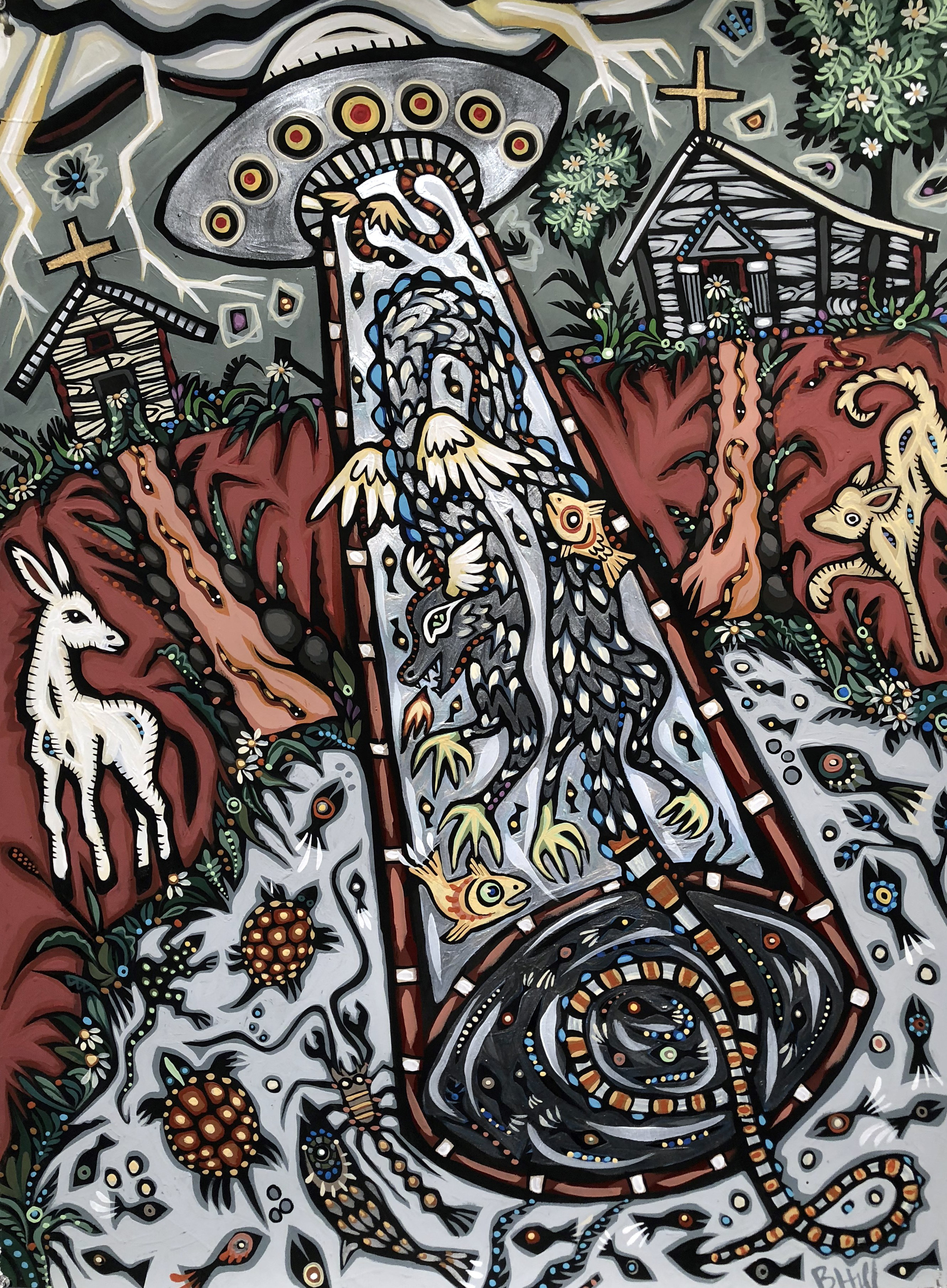
Gabrielle Bates
Intro to Theater
I can remember one particular time, in her grandparents’ attic,
her legs, slightly older than mine, shaved amphibian-smooth,
her breath around my face like an evaporated puddle.
Naked or almost, in semi-darkness, her blue eyes
dusk. We wouldn’t allow our mouths to touch.
She’d hold her hand over mine and tongue her own knuckles.
Each time was the last time until the real last time,
which felt more like a beginning. Earth on the third day.
Alluvium. Swamp lily. Wax myrtle. Rose mallow.
Adam would kiss me in a similar way not long after,
as part of the school play, using his thumb to make a barrier
between our lips, and all our classmates would watch us.
I was bleeding from my center, I remember, the moment
his hand made contact with my face—forgettable
line he’d scrawled in blue ink risking to smear
across my cheek. So much time passed
between the kiss and the ending. I remember thinking
it seemed like the applause was for our deaths.
*
An earlier version of this poem originally appeared in print, in the Spring 2021 issue of Ploughshares. It also features in the book Judas Goat (Tin House, 2023).
*
Author’s Note:
I’m awed, often, by how artifice can take us to a true feeling, and I’m enamored by the role of paradox, generally: how we travel through song to attend to silence, how we conjure the smallest tangibles—a dead mouse, a ripe persimmon—to convey the ineffable. One autobiographical paradox at the heart of my poem “Intro to Theater” is the way that memorizing someone else’s language (Anne Frank’s) and performing it on a stage in Birmingham, Alabama, at twelve years old opened a door to more honest introspection about myself—who I was, versus who I thought I was supposed to be.
Puberty’s cusp is a tumultuous time for almost everyone, and I was no exception. As an earnestly devout and perfectionistic Christian girl of Jewish lineage, terrified by her increasingly consuming desire to make out with girls as well as boys, I tried very hard to expunge with prayer every perverse and unnerving aspect of myself, to (shocking!) very little success. Many of the fervent suppressions of my youth pressurized, ultimately, toward poems in my first book, Judas Goat, which is interested in secrets of many kinds, and the ways authority figures, cultural norms, religious beliefs, and so on, conscript young people—often under the guise of care—into cycles of harmful silence and ignorant obedience.
Bisexuality (by which I mean most simply an attraction to more than one gender) is a fraught and privileged form of queerness. Because I could and did keep my sexuality under wraps for many years, and because I married a man at a young age, I’ve struggled to know how and when to publicly acknowledge what feels like a private slice of who I am. Poetry, thankfully, allows me to attach language to what feels too complex and private to discuss in any other way.
Gabrielle Bates is the author of Judas Goat (Tin House, 2023) and co-host of the podcast The Poet Salon. On Twitter: @GabrielleBates.
